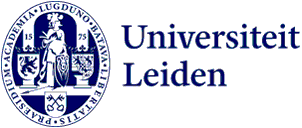
Alumna first female rector of Venice: 'More women needed in academia'
Alumna Tiziana Lippiello became the first female rector magnificus of Ca’ Foscari University of Venice last year. In this way, she hopes to contribute to emancipation in the academic world: 'We need more women here.'
After studying in Italy and China, Lippiello ended up in Leiden for a PhD in Sinology. ‘Leiden was and still is very famous for its Asian studies, and Chinese studies in particular,' she says. ‘I had a wonderful, human experience there. The university was great, and I had many friends. In fact, I am still friends with people who started their PhDs back then. Some are now professors at Leiden University, like Maghiel van Crevel of the Sinological Institute. I really had one of the best experiences of my life there.'
University ladder
After obtaining her PhD, things moved quickly for Lippiello. She started working at Ca’ Foscari University of Venice, where she also obtained her master's degree. Gradually, she climbed the university ladder. She became a member of the academic senate and coordinated several projects, including two double degrees with a Chinese university. After a period as head of the Department of Asian Studies, she became vice-rector in 2014. In this role, she was initially responsible for international relations with Asia and then with the whole world.
When it became clear that the university was looking for a new rector, Lippiello decided to apply. In the end she was elected with 381 votes, well above the required 348 votes.
Major achievement
As the first female rector, Lippiello sees her appointment as an achievement in a larger context. ‘I want to make my contribution to the feminist effort,' she explains. ‘My goal is to exchange experiences with institutions and other universities in order to advance the efforts and creativity of women.’ The first results of this effort are already visible. The university recently made several scholarships available for women who wish to study exact sciences, for example. 'There are significantly fewer women at such programmes. In this way, we want to encourage young women to pursue their interests in scientific subjects.’
Another initiative is to continue the development of the university magazine “LEI”, specifically for women. ‘The name of the magazine means “she” or “her” in Italian, but it is also short for “leadership, energy and entrepreneurship.” The magazine features interviews with entrepreneurial woman from different backgrounds, and articles on the arts and humanities.’
More women in higher positions
As far as Lippiello is concerned, these initiatives are only the beginning – she would like to see more women in higher positions in the academic world. ‘Men are more privileged than women in this field,' she says. ‘We are not used to seeing women in these positions, especially in the academic world. Perhaps some women hesitate because of childcare. The Netherlands is more advanced in terms of gender equality, but nevertheless Leiden has only recently named a female rector,' Lippiello says, referring to the appointment of Hester Bijl as rector magnificus. 'As soon as it is possible, I would like to return to Leiden to meet her and have a conversation about this,' she says. In the meantime, Lippiello has a tip for all women: ‘Seize your opportunities!’
